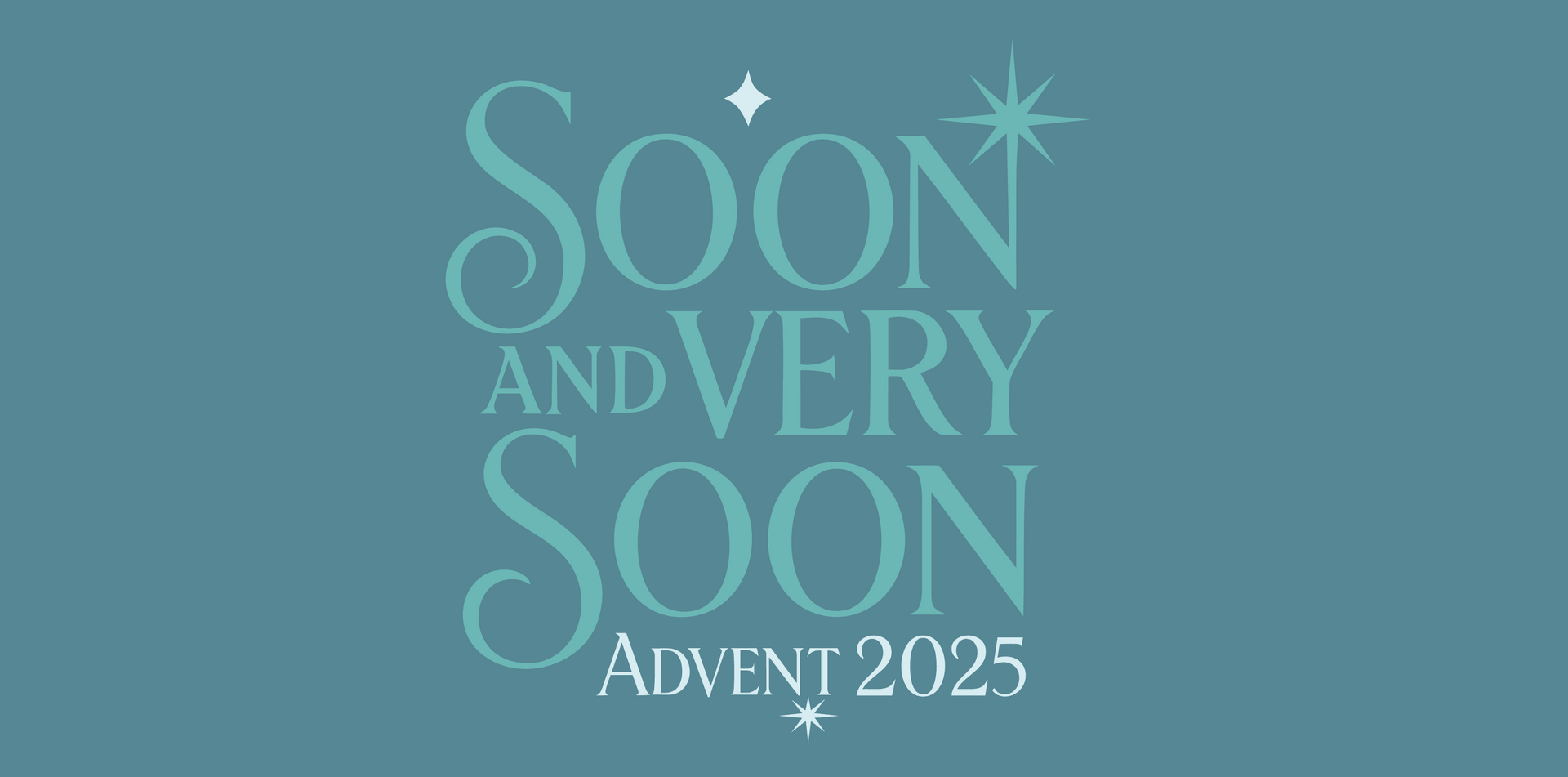Sermon 07.02.2023: Call of Samuel
It is always God who does the calling, but sometimes we need other people to hear God’s voice. Join us for a sermon series this summer exploring the call stories of different people in scripture, and as we explore our own calls. God is calling you. Yes, you.
Scripture
1 Samuel 3:1-19
The Lord Calls Samuel
3 The boy Samuel ministered before the Lord under Eli. In those days the word of the Lord was rare; there were not many visions.
2 One night Eli, whose eyes were becoming so weak that he could barely see, was lying down in his usual place. 3 The lamp of God had not yet gone out, and Samuel was lying down in the house of the Lord, where the ark of God was. 4 Then the Lord called Samuel.
Samuel answered, “Here I am.” 5 And he ran to Eli and said, “Here I am; you called me.”
But Eli said, “I did not call; go back and lie down.” So he went and lay down.
6 Again the Lord called, “Samuel!” And Samuel got up and went to Eli and said, “Here I am; you called me.”
“My son,” Eli said, “I did not call; go back and lie down.”
7 Now Samuel did not yet know the Lord: The word of the Lord had not yet been revealed to him.
8 A third time the Lord called, “Samuel!” And Samuel got up and went to Eli and said, “Here I am; you called me.”
Then Eli realized that the Lord was calling the boy. 9 So Eli told Samuel, “Go and lie down, and if he calls you, say, ‘Speak, Lord, for your servant is listening.’” So Samuel went and lay down in his place.
10 The Lord came and stood there, calling as at the other times, “Samuel! Samuel!”
Then Samuel said, “Speak, for your servant is listening.”
11 And the Lord said to Samuel: “See, I am about to do something in Israel that will make the ears of everyone who hears about it tingle. 12 At that time I will carry out against Eli everything I spoke against his family—from beginning to end. 13 For I told him that I would judge his family forever because of the sin he knew about; his sons blasphemed God,[a] and he failed to restrain them. 14 Therefore I swore to the house of Eli, ‘The guilt of Eli’s house will never be atoned for by sacrifice or offering.’”
15 Samuel lay down until morning and then opened the doors of the house of the Lord. He was afraid to tell Eli the vision, 16 but Eli called him and said, “Samuel, my son.”
Samuel answered, “Here I am.”
17 “What was it he said to you?” Eli asked. “Do not hide it from me. May God deal with you, be it ever so severely, if you hide from me anything he told you.” 18 So Samuel told him everything, hiding nothing from him. Then Eli said, “He is the Lord; let him do what is good in his eyes.”
19 The Lord was with Samuel as he grew up, and he let none of Samuel’s words fall to the ground.
Sermon Text
Today we are beginning a sermon series about how God calls us. Often in the church, you might hear your pastors talk about our call stories, and how we ended up becoming ministers, and finding our way to serve along with you here.
But all of us are called. And there are lots of voices calling, so determining when God is on the line is sometimes the challenge.
Writer, pastor, and theologian Frederick Buechner famously said, “The place God calls you to is the place where your deep gladness and the world’s deep hunger meet.” Wishful Thinking (1973)[1] In other words, we aren’t called to torture and drudgery, even when we are called into difficult situations. Deep gladness and deep hunger go together.
God calls each one of us to particular kinds of service. Some of that service comes with a job title—pastor, deacon, elder, fire fighter, nurse, teacher.
Sometimes we find our call in the middle of something we thought was just a job to pay the bills. I think my mom did that when she had to go back to work after my dad went blind. I think her call was to create community. She lived much of that out in her work at the phone company.
Sometimes our call is less recognized by the world—the one who comforts colicky babies, the person who feeds other people, the one who cleans the streets, the person who advocates for others. It is a call.
In this series, we will look at the different call stories of people in the Bible. Today we start with the story of the prophet Samuel, who needed help from someone else to hear the call.
As we begin worship, listen to this poem from Rainier Marie Rilke:
God speaks to each of us as he makes us,
then walks with us silently out of the night.
These are the words we dimly hear:
You, sent out beyond your recall,
go to the limits of your longing.
Embody me.
Flare up like flame
and make big shadows I can move in.
Let everything happen to you: beauty and terror.
Just keep going. No feeling is final.
Don’t let yourself lose me.
Nearby is the country they call life.
You will know it by its seriousness.
Give me your hand.
I, 59 (page 119, Rilke’s Book of Hours: Love Poems to God)
You may be familiar with the story of Samuel’s mother, Hannah, who poured out her soul before God, praying for a child. Eli was the priest who thought she was drunk, before he realized what an honest pray-er looked like. God granted Hannah just what she needed, the birth of a son.
And Hannah gave Samuel back to the Lord.
‘Oh, my lord! As you live, my lord, I am the woman who was standing here in your presence, praying to the Lord. For this child I prayed; and the Lord has granted me the petition that I made to him. Therefore I have lent him to the Lord; as long as he lives, he is given to the Lord.’
There is faithfulness. And then there is faithfulness. When we think of giving back to God the thing we can’ imagine doing without, relinquishing a child back to God—it is a perfect trust borne out of pain and hope and love.
I’ve wondered if Hannah would have made the same decision to leave Samuel with Eli if she’d known about Eli’s sons. And maybe she did know about them. Because his sons were horrible people, and people complained about Eli’s sons and their behavior. They would steal offerings. They showed no respect to the office of priest or to the people the were to serve. They disrespected God and they disrespected their own father.
Actually, I wonder what Eli thought when she showed up with a 3-year-old and entrusted him to his care. Did he feel qualified to raise this child after failing so miserably with his own?
In the face of human frailty and brokenness, the faith of Hannah, the persistance of Eli, are all the more noteworthy.
And Samuel grows up in Shiloh with Eli and his deadbeat sons, serving God. We’re told “The word of the Lord was rare in those days; visions were not widespread.”
Don’t rush past those opening words from this passage. Some days, the miraculous stories of scripture seem far from our lives and experience. But maybe this one we can understand. Visions are few and far between. God’s word may seem silent in a world filled with the sons of Eli barking at us online.
Samuel knew of that experience too. He was ministering to God, even though the preacher’s kids in his church were jerks, even though visions were not widespread, even though he’d never had his own personal encounter with God—he was ministering to God.
Sometimes faith is a clearly answered prayer or a visit from an angel. Sometimes faith is going through the motions without a clear expectation that anything might even happen.
There’s no indication Samuel was expecting God would speak to him. We’re told: Now Samuel did not yet know the Lord, and the word of the Lord had not yet been revealed to him.
When God first calls Samuel’s name, Samuel doesn’t ignore the voice. He just doesn’t think it would be God at the other end of the phone. He goes to Eli, waking him up, to ask what he needs. “I need to sleep without being woken up” is what I might have said the first couple of times Samuel popped in saying “Here I am.”
Eli eventually wakes up enough to realize what’s happening and sends Samuel back with an action plan.
God has already instructed Eli to expect judgment because of his inability to correct the wickedness of his sons. Eli offers us a different view of faithfulness than Samuel’s mother does. Her faithfulness is at the moment when everything goes well, after her beloved son is born. Eli’s faithfulness is through the time everything falls apart, after his beloved sons sin in the eyes of God.
Eli never stops serving God, even as his sons descend into wickedness and as he hears about God’s coming judgment on him and his family.
Eli continues to minister to the people, continues to care for Samuel. And even though he is waiting for God’s judgment to be announced, he still sends Samuel in to receive the message. Eli shows a deep faithfulness in the midst of the train wreck of his life.
“Samuel, my son, ‘What was it that he told you? Do not hide it from me.”
There is grace and courage in facing things straight on, without apology or excuse. No matter your failings in the past, it is never too late to face the truth. Eli responds to the bad news with: ‘It is the Lord; let him do what seems good to him.’
As Eli’s story ends in tragedy, Samuel’s story rises out of its ashes. We‘re told, “As Samuel grew up, the Lord was with him and let none of his words fall to the ground.”
This story has me thankful for the people who have helped me figure out it was God’s voice I was hearing in my life. Religious communities–churches, or temples at Shiloh, are imperfect places filled with imperfect people. Like Eli’s sons. Like us.
And yet. while I understand why people leave organized religion these days, especially when American Christianity seems to have aligned itself so closely with one political agenda, I’m even more grateful for those of us who stick it out. Not because we’ve figured it all out, but because God spoke to Samuel in the middle of just such a time and place.
When we show up in worship in the middle of a long holiday weekend, and, let’s face it—there are plenty of other things we could be doing—we put ourselves in a particular kind of community. A messy, imperfect, loving, sacred community. And some days we get it right. Some days we are like Hannah, faithfully giving our very hearts and lives to God. Some days we are like Eli, not knowing how to clean up our messes, but here, nonetheless. Some days we are like Samuel, serving God even when we’ve never heard God’s voice and aren’t really sure what we’re doing here.
I think about the call of Samuel and the mess of his faith community, I think, with gratitude, of you and the other faith communities I’ve been in that helped me hear God’s call in my life, despite the chaos around me.
I have mostly heard God’s call because of other people. When Justin and I were newly married and living in Albuquerque, I was working at an elementary school and considering applying to law school. Or maybe getting my teaching certification. I’d turned down acceptance to graduate school already when I realized a PhD in European Social History was not quite the right path for me.
A number of people at our church asked me if I was going to apply to be the youth director. My response each time was some version of, and how do I say this politely, “hell no.” I was 24 years old and had barely recovered from my own high school years. The idea of working with teenagers made me feel like I would be my 14-year-old hot mess of a self, walking into the lunchroom on the first day at a new school.
Additionally, I had just placed a child for adoption a few years earlier, when I was in college. I wasn’t really feeling like much of a role model for anyone else.
So God sent more people to ask me if I was applying. And I continued to say no. Even as I was actively trying to figure out what God had in mind for me to do with my life. One night I had a dream where I heard a loud, stern voice call out, “Marci. Listen to me.”
I woke up in a cold sweat. I knew exactly whose voice I’d heard and it terrified me a little. The next day I applied for the youth position at the church. “Okay, God. This is a terrible idea. But I’ll do it.”
In the interview, the committee asked a number of questions. I had no experience, and really not many discernible skills at that point in my life. God bless that committee. One of their questions was “let’s say one of the kids in your youth group comes to you and tells you she’s pregnant. How would you counsel her?”
I told them that was the one question for which I knew the answer. And I told them my story, and how the church had helped me through it. By the end of the interview, the entire committee was in tears, as was I, which is never my preferred way to interview for a job. They still offered me the job, and because of them, I found my calling and my career.
I don’t know that I would have found my calling without the help of other people.
I’d like to say I have been quicker to hear God’s call since that experience. But as many of you know, it wasn’t until 10 different people told me there was a church seeking a pastor in San Francisco and the call sounded like a good fit for me, that I finally looked into it, acknowledged that, yes, it did seem like something worth exploring. And now here we are.
Because sometimes the call comes when you’re doubting your own giftedness and call, as it did for me when I was 24. Sometimes the call comes when you’re busy enjoying the life you’re leading, as it did when I was 50.
Whether or not you think you’ve heard God’s voice, I invite you to look back at your life and remember the voices of the people who were there at those critical junctures for you. How did their advice, or their pushiness, or their love, or their directness help you find your path?
As I think about call, it makes me think of community. I’m not going to suggest there are limits to how God can speak to people. Because God is God and I am not. God can speak through strangers and I trust God can find people to deliver the call even if you never leave your home.
But my experience of God’s call has been lived out in community. By people who know me, which means they know the real me, the one who is sometimes a mess and sometimes a delight. And they have been able to tell me things that sometimes I didn’t think I wanted to hear.
And so that is why I am so thankful for the church, for all the congregations I’ve been a part of through the years and for you. Because God’s call has always been the life-giving path I’ve needed even when I couldn’t see that I needed it.
I’m thankful to be here with you, listening together for God’s voice, and trusting that whatever God calls us to do, we will help each other through it. Because friends, look at the world around us. This world needs you to answer God’s call because the world needs to know God loves them.
God is calling you. Yes, you.
Amen.
[1] Wishful Thinking — Frederick Buechner (7/11/1926-8/15/2022)

Art by Rachel Wolf











